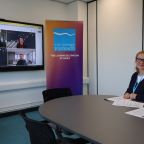
From the idea – to the actual realization: a guide on how to be admitted into Oxbridge
From the idea – to the actual realization: a guide on how to be admitted into Oxbridge
An Oxbridge tutor tells how to maximally increase your chance to be admitted into Oxbridge
One should start its preparation for admission into the world’s top universities in advance. If you plan to begin your preparatory Oxbridge tutoring just a couple of months before the high school graduation exams, it simply won’t work. This way, you will most likely forget the knowledge that you’ve “learned” during the express preparatory course.
Besides, top universities are focused not so much on theoretical knowledge, but on practical skills. While the theory, with a certain desire and with the help of corresponding preparation Oxbridge tutors, may be learned during the six months period, the practical necessary skills and abilities cannot be mastered over a couple of sleepless nights over textbooks.
Yet do not be afraid of difficulties and don’t ditch the dream of becoming a student at Oxbridge universities. Instead, better be saving up money for Oxbridge tuition, since nothing is impossible if you approach the process of entering a university responsible and step by step break the complex task of preparation into simple and understandable stages.
Step 1. Choosing the university
Most often, people are aimed at entering a particular university. It can be, in this instance, either Cambridge or Oxford, but there are also other high-ranking Unis like Harvard.
However, what is important to understand is that an admission to a particular university should not be the end in itself of obtaining education.
Look at alternatives, study the teaching staff, scientific potential, who were graduates of educational institutions, etc. Compare the cost of not only studying, but also living in the city, the political and economic situation. If possible, you should go to the university and see with your own eyes how everything is arranged there.
You need to send your application as early as possible, a year or six months before admission, in order to avoid the risk of a deficit of places for the program of interest to the student. Be sure to clarify what the application deadline is for your university.
Step 2. Ensuring good high-school grades
Sometimes, one of the criteria for admission to universities abroad is the child's grades at school. Most often, this is not even the average score of the certificate, but an extract of grades for the last three years, since it is important for the admission committee of the university to see the progress of the student. Therefore, you should work to ensure having good grades in the last 3 years of your school education.
The common schools in your area most likely won’t provide enough knowledge to help you secure the place in Oxbridge. Alternatively, if you graduated from a private or specialized school, where the tutors teach according to the standard state curriculum, and the education process itself is aimed at developing skills, then you are more likely to go to university. In most cases, such students have a higher level of English, they are more active and do not get lost in non-standard situations.
Step 3. Learning the language
Language is a factor that is difficult to overestimate and with which the main difficulties arise. Upon admission to a university, a certificate confirming the level of the language is required. Most often it is English. The two most popular types of certificates are accepted worldwide: IELTS and TOEFL.
You should not only pass the language proficiency test with a high score, but also be ready to speak it, think, express thoughts logically and, most importantly, study subjects. At the university, even in the first year, no one will teach you a foreign language, and from the first day they will begin to read higher mathematics or biotechnology in English.
Step 4. Learning to think systematically
Another key skill that will certainly come in handy upon admission and further education is the ability to think systematically and perceive information holistically. The enrollee should be able not only to perform some particular task, but to understand why it is necessary.
Such a skill will give the future student the opportunity to manage several projects at once and seamlessly move from one type of task to another. Systematic thinking allows one to quickly respond to any changes and not be afraid to quickly make important decisions.
Step 5. Becoming sociable
In a foreign university, you will find yourself in a completely new environment of life. In order to successfully adapt to the conditions that have arisen, form your own circle of acquaintances and find friends, you will have to communicate a lot. To do this, you need to learn how to properly communicate with people and not be afraid of it. And the inability to present your ideas and projects can lead to poor academic performance, as well.
Step 6. Putting together a portfolio
When applying, it is often necessary to submit a portfolio of your work, present activities that will testify your steps in the direction of your chosen profession, show your social position and activity. In the UK, the social contribution of the enrollee, social responsibility, focus on the development of society and the environment are highly valued.
Charity, volunteering, trainings, participation in the implementation of social projects, membership in public organizations, work in the school parliament and various activities in the field of non-formal education will become a weighty argument for the selection committee. In addition, this kind of activity develops creativity, a skill that is highly valued in the world. Thinking outside the box is what is needed now, not only in creative professions, but also in other areas.
Step 7. Getting ready for an interview
Acquaintance with potential students is also a mandatory part of admission. Sometimes it can take place on Skype or Zoom. At the same time, the applicant should not be confused and show the ability to conduct a conversation, coherently express and argue thoughts, and present their achievements. Preparation for this stage should be given special attention, since even geeks and excellent students often lack the simple ability to communicate and convey their thoughts.











